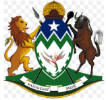When the petrol price increases, my salary decreases – KZN taxi driver
A KwaZulu-Natal taxi driver says his salary decreases every time the price of petrol goes up.
Linda Nkosi, 39, from Umzinyathi, north of Durban, told News24 on Wednesday that taxi drivers want government to lower fuel prices by 35%.
Nkosi was one of about seven taxi drivers from Qina National Public Transport Workers' Association who handed over a memorandum of grievances to an official from the premier's office in Durban.
"The price of petrol is too expensive now. It greatly affects our livelihoods as taxi drivers. When petrol goes up my salary decreases because a chunk of the money I make at the end of the day goes towards petrol," he said.
Nkosi, a driver from the Ndwedwe District Taxi Association, said he gets paid according to the money he makes each week. He added that he couldn't reveal his salary to the public.
"When taxi prices go up due to the petrol price hikes taxi prices also go up. Passengers then take alternative transport such as buses and trains, which are subsidised by government. When I have no passengers, I make less money and my boss pays me less," said Nkosi who has been a taxi driver since 2004.
Threats from 'taxi owners'
He said the fuel hikes did not only affect him but his family as well.
"I take care of my family and four children with my salary. When there are increases in petrol, they also suffer. I have a child who has matriculated but I can't send her to tertiary. Another one is doing matric this year and with the petrol price constantly increasing, I will also not be able to send her to tertiary," he said.
Clement Doncabe, chairperson of Qina National Public Transport Workers' Association, said a group of taxi owners prevented other taxi drivers from participating in the march. He said those owners had gathered at the King Dinuzulu Park where the march was supposed to begin.
"They threatened taxi drivers not to participate in the march. They called themselves taxi owners, but we don't know which association they come from. We spoke to Santaco (South African National Taxi Council) KwaZulu-Natal and they agreed that they'll pass the message on to other regions so that they can send their drivers to the march," he said.
He said the "threats" from the taxi owners were a reminder of the challenges faced by taxi drivers in the industry.
"The drivers are not slaves or animals that are kept captive by taxi owners so they can make money for them. We are living like slaves under the masters which are the taxi owners, this can't be happening in a free country," he said.
Government looking at ways to 'ease the pinch'
In their memorandum of grievances the taxi drivers demanded that fuel prices decrease by 35%; that government subsidises the taxi industry; that professional driving permits be renewed after a period of five years like driver's licences; and that the demerit system for transport offences be scrapped.
They gave government 14 days to respond to their grievances.
Zakhele Mnqayi, a deputy director general from the office of the premier, promised the drivers that the office would get back to them within the stipulated period.
"We, as the office of the premier, will work together with the provincial transport department and the national government to address your grievances," said Mnqayi.
Durban metro police and the South African Police Service's public order police had come out in their numbers to the march in anticipation of a larger crowd.
During the launch of the Thuma Mina campaign in KwaZulu-Natal on Saturday, July 7, President Cyril Ramaphosa reiterated that government was looking at ways to "ease the pinch" that South Africans were feeling following the recent fuel price hikes.
He said he had noticed that following the petrol price hikes and the recent increase of VAT, "our people were beginning to struggle".
"Government is looking at measures to ease the pinch that our people are facing, but one of the difficulties is that we import petrol from other countries. It becomes difficult when the dollar is stronger than the rand. We then pay more and that's where the challenge is," he said.

